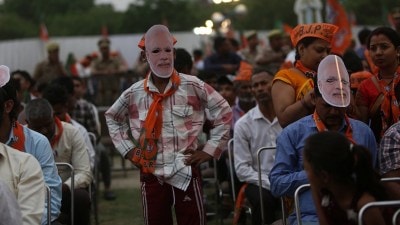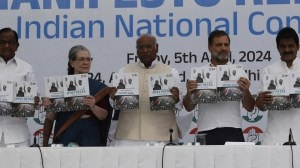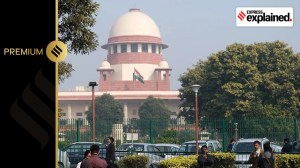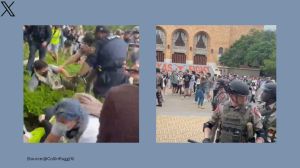- India
- International
HC denies ‘exclusive’ puja rights to Brahmin priests in Satara temple
The Bombay High Court dismissed a plea filed by the Badave community seeking exclusive rights to perform puja.
Refusing to grant a caste-based privilege claimed by priests from a temple owned by NCP MP Udayanraje Bhosale, the Bombay High Court Thursday dismissed a plea filed by the Badave community (Brahmins) seeking exclusive rights to perform puja and other rituals at the Shiv temple at Shikhar Shingnapur in Satara, a major pilgrimage destination.
Twenty-seven Badave priests had filed a second appeal against 14 Jangam priests from the Lingayat community, seeking “injunction restraining the Jangams from obstructing the exclusive rights of the Badaves of performing puja and related rituals as priests and to take income of the same…”
The Jangams had been questioning the Badaves’ privilage since 1985.
The Badave priests had argued that in all temples, a Brahmin alone performed religious rites and rituals and “a person other than a Brahmin is prohibited” from doing so. They argued that the Jangams would have to prove a custom in their favour to prove their right to perform the rituals.
Looking back at a suit filed by the Badaves in 1929, the court noted that in 1932, a court had granted a permanent injunction against the Kolis, who had “obstructed” the right of the Badaves to perform the religious rituals. “The history of the litigation shows that other communities have been obstructing the Badaves in performance of such rights. Hence, the question of calling upon the defendants (Jangams) to prove their customary right does not at all arise,” the court wrote in its order.
A claim for customary or traditional “right in rem”, Justice Ravi K Deshpande said, carries with it a heavy burden of proof. A right in rem is a right against the world at large that is undisputed and uncontested by any party or the defendents in the case. “No custom is valid if it is illegal, immoral, unreasonable or opposed to the public policy,” the court observed.

The Badaves also argued that Bhosale, the owner of the temple, had granted them the permission to perform the rituals in the temple and had specifically refused such permission to the Jangams. The court, however, said the dispute was not about the owners trying to assert their right to manage the temple affairs but that between two Hindu communities – Badaves and Jangams.
“It is not the case that according to the tenets of religion, only the Badaves are well-versed and properly trained and qualified to perform the religious rites and rituals in a manner conducive and appropriate to worship of the deities and are the only persons authorised to enter the sanctum sanctorum of the temples,” the court observed.
Apr 25: Latest News
- 01
- 02
- 03
- 04
- 05








































